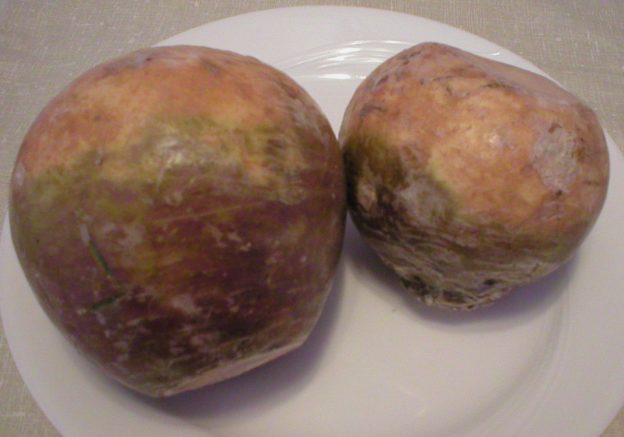There’s a strong movement now about using little to no added oils in foods. So, people are looking for ways to have their beloved roasted vegetables made without oil. I did a three-way test comparison to find the best way to roast rutabaga fries without oil. SEE the results in the video below! The difference is really amazing. Test notes are below the video. Enjoy!
I hope this helps!
Judi
Oil vs No Oil Rutabaga Fries
Comparison Test Results
In this test, rutabaga was peeled and cut into about ½-inch thick pieces as French fries. They were treated in three different ways: raw with no oil, raw with a light coating of oil, and boiled for 9 minutes until just barely fork-tender and not coated with oil. All were lightly seasoned with paprika and sea salt, then placed on parchment paper on the same baking sheet and roasted at 400F. The pieces were flipped over about half way through the roasting time.
The results are as follows:
Time
The raw with oil and boiled with no oil batches were fork-tender from 50 to 60 minutes of roasting time. The raw with no oil coating pieces were tender inside after 65 minutes of roasting.
Appearance
The raw with oil pieces appeared like a typical vegetable roasted with an oil coating—browned areas on each piece. There was a little withered look to them, as is typical with vegetables roasted this way.
The boiled with no oil batch did not have much browning on them, except the fine tips on some pieces did have some browning. There was no withered look to this batch.
The raw with no oil batch looked very unappealing, being dry and withered looking with some burned areas toward the tips.
Texture
Both the raw, roasted with oil batch and the boiled with no oil batch were tender on the inside with a slight bite or chewiness on the outside. The raw with no oil coating batch was very rubbery on the outside although they did have some degree of tenderness on the inside. Sides of pieces that touched other pieces during the roasting process were very tender with no toughness on that area.
Speculation: From this test, it appears that rutabaga slices roasted raw without oil may cook well and be tender if some liquid was added to the pan and foil was covering the pan, sealing in the juices. This would not allow for browning, but the pieces would very likely come out tender with no toughness. They could possibly be browned by briefly being broiled at the end of cooking time.
Flavor
Both the boiled and roasted without oil and the raw with an oil coating batches had a flavor as expected. There was a mild flavor from the rutabaga with flavor from added seasonings. The batch that was roasted dry from a raw state tasted burned from the overly browned areas. It was the least appealing, flavor-wise.
Conclusion
Roasting rutabaga pieces on parchment paper without oil, that are cut as French fries, then boiled until they are just barely fork-tender (about 9 minutes), yields a very comparable result as roasting rutabaga pieces cut in the same manner, and lightly coated with oil then placed on parchment paper and roasted.
The boiling before roasting method is a great option for those wanting rutabaga fries without added oil.

